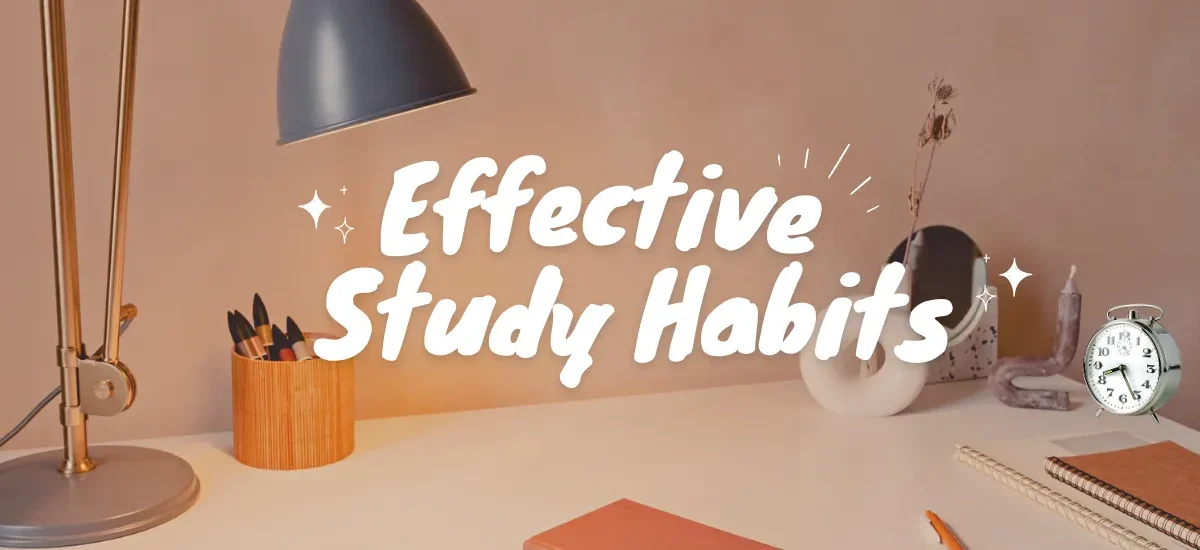Efficiency Equals Success: Transform Your Study Habits and Time Management
In a student’s life, high school is a pivotal period filled with personal growth, character development, academic challenges, extracurricular activities and social events. When these are listed they sound quite overwhelming but mastering the skill of effective time management and study habits both make a major difference. Here’s a guide which would help students navigate their responsibilities to achieve their goals.
Clear goal setting:
- Setting achievable, realistic, time-bound smart goals are highly effective as this provides not only direction but also motivation. This can come in handy for various situations whether that is being able to attain a particular SAT score or mastering an art, having clear goals would help prioritise tasks and therefore allocate time to everything in an effective manner. Once you have been able to identify your goals, the next step is to break them into small actionable steps. An example of this would be attending extra classes in case your performance in a particular subject is weak, practice worksheets and reviewing your notes daily. By doing so you’re making progressive advancement and getting better while avoiding feeling overwhelmed about the goal. Having a specific and clear goal is essential for productive and achievable success. This approach would aid you in being able to attain a clear target goal, thus making tracking your personal progress easier. It’s okay to modify your goals based on the circumstances, interests change and so your goals could evolve!
Creating a schedule:
- Having a detailed, well thought of schedule is an essential part of effective time management. Using a planner, or even the digital calendar application on your phone to map your day or month is highly beneficial. However, balance is key and thus it’s important to include leisure time so you don’t burn yourself out. Start out by writing down all of your commitments. This could range from school tasks, extracurricular activities and study sessions. Once you have a clear, well thought out list, start looking at the week and plan it out. Dedicate specific hours to each activity. Make sure that you’re giving enough time to each activity and completing all assignments. Staying on track with your school tasks is critical to ensure you’re on the right path. B realistic about how long you’ll take to complete these tasks. Avoid cramming in too much work in one day, it’ll lead to a burnout which would result in unproductivity. Try using a physical or online calendar to keep track of your schedule. Some popular online tools you can check out would be Google Calendar, Notion or Todoist.
Breakdown assignments:
- large assignments can be daunting! Breaking them into bits and dividing it over a period of time helps make it seem more manageable and also prevents stress. Start by listing everything you need to complete and then categorise them based on how important they are or when they are due. You could try using the Eisenhower Matrix for this as it’s a popular tool. The tasks are broken into four quadrants which are:
- Urgent and important
- Important but not urgent
- Urgent but not important
- Neither urgent nor important
- Once you have successfully categorised your tasks, it’s best to start by tackling the important ones first. All of these should be put into your calendar to ensure that you’re not procrastinating. Having effective deadlines involves being mindful of the amount of time that should be dedicated to each task. It is vital to note your personal energy levels when working on prioritisation of tasks. Figure out what your personal schedule looks like, when do you work best? Are you a morning or night person? Schedule your most important tasks for when you’re most productive and at your finest hour.
Minimizing distractions:
- It’s important to sit back for a minute and reflect upon what your distractions are. Once you identify them, the next step is to find ways in which you can minimise them. This could be turning off the notifications on your phone, using tab or app blockers for limited periods of time. Creating a dedicated space that motivates you to study is also helpful. Keep your space clean and free from clutter as it is proven that a clear environment can help reduce the amount of mental distractions and increase the amount of productivity. Working towards establishing a routine can help minimise distractions. Consider using noise-cancelling headphones or playing background music which would help you concentrate even in disturbed environments. When you notice your thoughts diverting, practice mindfulness to have control over your mind and strive towards regaining your concentration. If staying focused for prolonged periods seems unattainable for you, try using the Pomodoro Technique.
A few effective study techniques:
- Active learning: Where you engage with the study material and summarise the information without looking. This could be done by either noting down what you just studied, teaching someone else or applying it in real life scenarios.
- Mind mapping: Many people tend to learn better when they can visualise what they’re learning and make connections which therefore improve their memory. Start with a central theme or concept and then branch into related concepts and ideas. The map is a visual representation which showcases how everything is interconnected. This method is particularly useful when subjects require understanding the connection between concepts.
- Spaced repetition: Reviewing material in intervals to improve the long term retention that you have. For instance, when you’re learning a new concept you review it the next day, then again after a few days, then a week later and so on. This helps reinforce the information in your memory and makes it easier to recall in exam situations.
- Practice testing is known to be one of the most effective techniques when it comes to improving your recall. This could be done by testing yourself using different mediums such as flashcards, practice quizzes or even past exam papers. This would challenge your brain, strengthen memory and also gradually increase your confidence in yourself as you notice yourself getting better at retaining information rather than forgetting.
Self-care:
- An individual’s mental and physical well-being has a direct impact on their academic performance. It’s important to keep track of whether you’re getting enough rest, having a balanced diet, and exercising. Additionally, make sure to take breaks while studying to prevent a burnout. Getting enough sleep is one of the most important aspects of your health which have a direct impact on your learning and memory. Teenagers need at least 8-10 hours of sleep daily and lack of sleep can lead to impairing your memory, concentration, and also problem-solving skills. To improve your sleep schedule work on implementing a routine that you stick with, avoid having caffeine, and screen time before bed. Nutrition plays an important role in maintaining your energy levels and cognitive functions. Regular physical activity would help in increasing the amount of blood flow to your brain and thus lead to enhancement of memory and reduce your stress levels. Knowing when your body needs a break, pushing yourself too much would lead to a burnout which would be counterproductive in the longer run. It’s okay to step away from your studies for a bit to be able to come back with better levels of energy and focus.
Effective time management and study skills are imperative for high school students. By having a structure in your life, prioritizing tasks, minding distractions, taking care of your health, and identifying which study method works best for you, you will be able to achieve a successful high school experience that you will forever cherish! It’s not always working hard; it’s working smart too!


